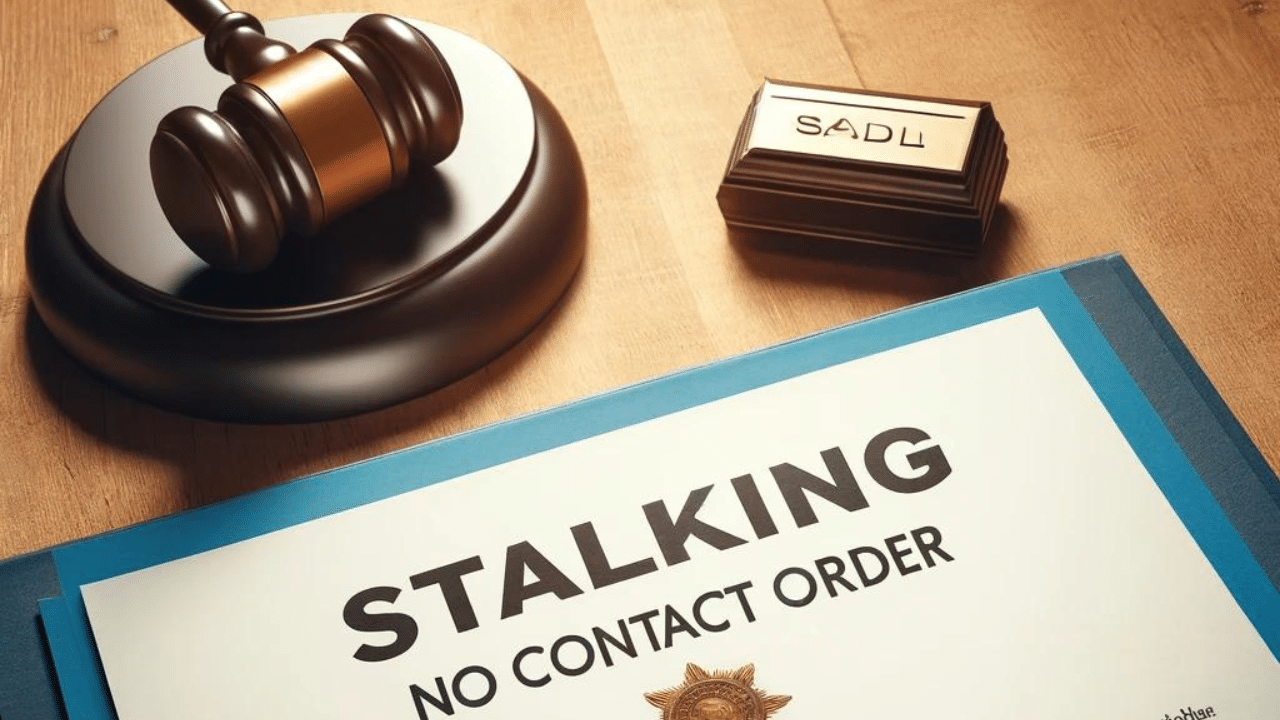Stalking in Illinois is a serious issue, and the courts offer various protections depending on your relationship between the Petitioner (the person seeking the Order) and the Respondent (the stalker). This blog explores the legal options available, focusing on Stalking No-Contact Orders (SNCOs), which provide legal protection against stalkers. Read on to find out the steps to take to obtain an SNCO and understand the different types of protection.
Illinois Order of Protection
An Order of Protection under the Illinois Domestic Violence Act is only for people who have been abused by a family or household member. According to Illinois law (750 ILCS 60/103 (6)), “family or household members” include:
- spouses, former spouses, parents, children, stepchildren, and other persons related by blood or by present or prior marriage,
- persons who share or formerly shared a common dwelling,
- persons who have or allegedly have a child in common,
- persons who have or have had a dating relationship,
- and persons with disabilities and their personal caregivers.
So, what if the person stalking or harassing you isn’t your family or household member as defined above? What if the person stalking you is a former coworker or a friend of a friend?
A Stalking No-Contact Order may provide you with some relief. People used to call this a “restraining order.” A Stalking No Contact Order (SNCO) is exactly what the law prescribes when a Petitioner cannot get relief under the Illinois Domestic Violence Act.
What Is Stalking in Illinois Law?
Stalking in Illinois law involves a course of conduct directed at a specific person, where the stalker knows or should know that the conduct would cause a reasonable person to fear for their safety or experience emotional distress.
Key Elements of Stalking
- Emotional Distress means significant mental suffering, anxiety, or alarm.
- Course of conduct means 2 or more acts, including but not limited to acts in which a Respondent directly, indirectly, or through third parties, by any action, method, device, or means follows, monitors, observes, surveils, or threatens a person, workplace, school or place of worship, engages in other contact, or interferes with or damages a person’s property or pet. A course of conduct may include contact via electronic communications.
- Contact includes any contact with the victim, that is initiated or continued without the victim’s consent, or that is in disregard of the victim’s expressed desire that the contact be avoided or discontinued, including but not limited to:
- Being in the physical presence of the victim;
- Appearing within the sight of the victim;
- Approaching or confronting the victim in a public place or on private property
- Appearing at the workplace or residence of the victim;
- Entering onto or remaining on property owned, leased, or occupied by the victim;
- Placing an object on, or delivering an object to, property owned, leased, or occupied by the victim; and
- electronic communications.
Stalking does NOT include the exercise of the right of free speech or assembly that is otherwise lawful or picketing occurring at the workplace that is otherwise lawful. 740 ILCS 21/10.
Now that we’ve defined stalking, let’s explore the legal protections available.
How Can a Stalking No-Contact Order (SNCO) Protect Me?
A SNCO can order one or more of the following:
- Prohibit the Respondent from threatening to commit or actually committing stalking;
- Order the Respondent not to have any contact with the Petitioner or a third person specifically named by the court;
- Prohibit the Respondent from knowingly coming within, or knowingly remaining within a specified distance of the Petitioner or the Petitioner’s residence, school, daycare, or place of employment, or any specified place frequented by the Petitioner.
- However, the court can order the Respondent to avoid their own home, school, or workplace only if they’ve received notice and a chance to appear and present their case.
- Prohibit the Respondent from possessing a firearm Owners Identification Card, or possessing or buying firearms; and
- Order other injunctive relief the court determines to be necessary to protect the Petitioner or third party specifically named by the court. 740 ILCS 21/80 (b).
Of course, it’s important to remember that an Order cannot physically prohibit a Respondent from continuing to stalk the Petitioner. But, it does make continued contact or violations illegal, where they otherwise wouldn’t be. This means that a victim can call the police to report a violation of the SNCO.
An initial knowing violation of a SNCO is a Class A misdemeanor. Any second or subsequent knowing violation is a Class 4 felony. 740 ILCS 21/125.
What Are the Types of SNCOs?
The types of Orders differ in how they are granted and how long they are in place.
-
Emergency Order
Judges can grant emergency Orders immediately and can last up to 21 days. They can be granted without a formal hearing, and even if the Respondent is not present in court. This is because Illinois law recognizes how important it is to immediately protect victims. It is also the reason the emergency Order can only last 21 days.
-
Interim Order
An interim order is a way to extend the emergency order of protection in the event a hearing could not be scheduled in time. However, the person accused must have been notified of the extension or have appeared before the judge.
-
Plenary Order
A plenary order can be considered “permanent” although it can only last up to two years. A plenary order is only granted after a Hearing has been conducted, where both sides have presented their evidence and testimony, and the judge finds the victim’s claims have been proven.
Related Article: Domestic Violence and its Impact on the Divorce Process
How Do I Get a SNCO?
The first step is to file a petition. A petition should include the victim’s allegations and claims for a SNCO is needed. You can file a petition for an Emergency Order if there is a time-pressing issue or threat. You can also file a petition for a Plenary Order if there is no emergent threat and you would like to go directly to scheduling a hearing where you and the Respondent can both present evidence.
Typically, an advocate at the courthouse can help you fill out a petition. This may be the best option if you need an Emergency Order. A family law attorney can help you file a petition as well, and can ensure everything is included for the best possible outcome in a hearing.
What Happens in a SNCO Hearing?
In a hearing, both sides get to present their evidence and provide testimony for their side of the story. A judge considers everything presented and offers a ruling the same day. While some judges have the option to hold a hearing via Zoom, most choose to have this hearing in person, as it can be easier for them to determine a person’s credibility face-to-face rather than via video call.
It is best to discuss what type of evidence you want to present with a lawyer, as it can change on a case-by-case basis. In general, photographs, screenshots, call logs, letters, and other proof of the Respondent’s repeated stalking conduct are the best kind of evidence to support the stalking claims. Testimony is a type of evidence, too. After being sworn in, your testimony should provide the judge with a clear and consistent story of why you need to have the SNCO in place.
What If a SNCO Was Served on Me?
If you are the Respondent in a SNCO matter, you can seek the help of an attorney to represent you in the case.
False accusations of stalking are unfortunate, as many people who are actual victims need Orders, and people seeking them without needing them hurt other people’s cases.
However, as the accused, you need to take precautions. The most important thing you can do is contact an attorney. At Anderson Boback & Marshall, we help defend you against the false accusations made about you in court and we can facilitate a discharge of the accusation.
If you’re experiencing stalking, or you are falsely accused of stacking, contact Anderson Boback & Marshall to discuss your options and get the legal protection you need.















